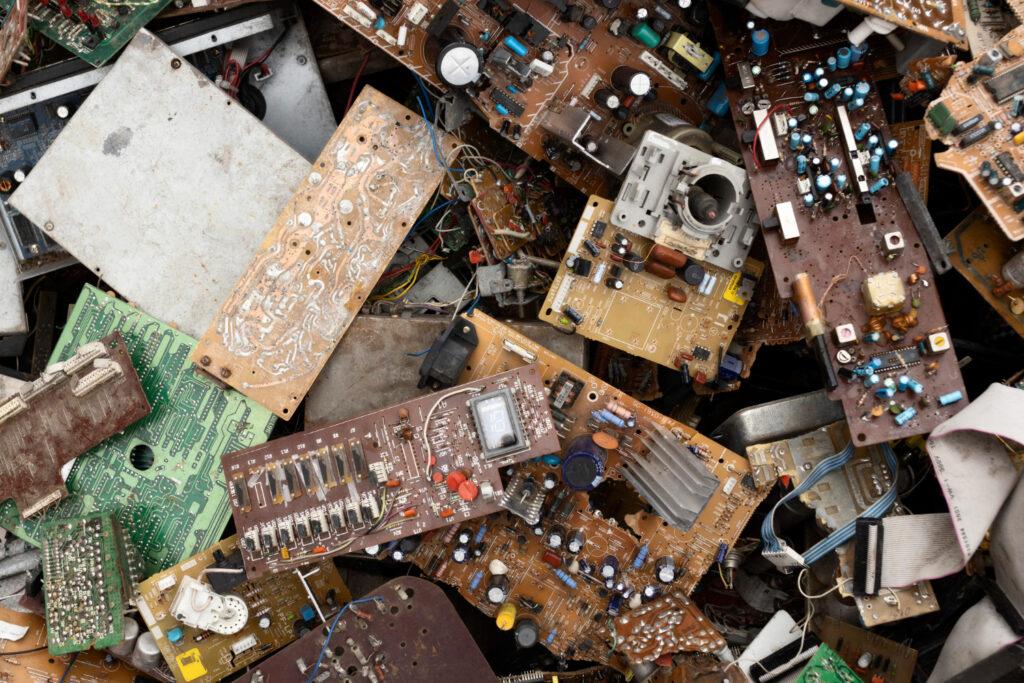In the midst of our fast-paced technological era, electronic gadgets have seamlessly integrated into our daily routines. However, the proper management of e-waste has become a pressing concern with this progress. Delhi, one of India’s most populous and technologically vibrant cities, faces unique challenges when it comes to E-waste recycling. This blog aims to shed light on the current state of e-waste management in Delhi and explore sustainable solutions for a cleaner, greener future.
The Growing E-Waste Challenge in Delhi
With its burgeoning population and thriving IT industry, Delhi is a significant contributor to India’s e-waste stream. The rapid turnover of electronic devices, coupled with inadequate disposal mechanisms, has led to a substantial increase in e-waste generation over the years. Delhi currently generates an estimated 200,000 tonnes of e-waste each year, based on Central Pollution Control Board (CPCB) data. Along with it, Delhi has a limited capacity for recycling e-waste and only about 20% of the e-waste generated in Delhi is estimated to be recycled through formal recycling channels.
Considering all these stats, the problem of Irresponsible E-waste management in Delhi seems to be a topic of concern. Effective e-waste management in Delhi is not only a matter of environmental concern but also a social and economic imperative.
Effects of Irresponsible Management of E-waste
Irresponsible E-waste management in Delhi has far-reaching and detrimental effects on the environment, public health, and the economy. A team of researchers from Jamia Millia Islamia conducted an investigation into the soil and groundwater conditions in the Krishna Vihar industrial area of East Delhi. Their findings were concerning, revealing a significant presence of toxic heavy metals seeping into both the soil and groundwater. This area, Krishna Vihar, is home to informal e-waste handling and disposal facilities. Additionally, it hosts recycling units that discharge their harmful byproducts, including heavy metals, directly into open spaces. Furthermore, it is not uncommon for solid waste to be disposed of by burning it in the open.
A significant portion of e-waste in Delhi is processed by the informal sector, often in unregulated and hazardous conditions. This sector plays a vital role in e-waste management but lacks proper safety measures. Workers in this sector, as well as nearby residents, are at risk of exposure to hazardous materials. Contact with e-waste components can lead to respiratory issues, skin disorders, and other health problems for individuals working in or living near informal recycling units.
To learn more about the hazards of irresponsible E-waste management. you can check our blog Improper E-Waste Management: How It Affects The Environment?
How can we solve this problem?
Responsible E-waste management in Delhi
E-waste Management companies in Delhi are striving to provide a better solution to E-waste Management. Other solutions include the following:
- Awareness and Education Campaigns: Conducting awareness programs targeting households, educational institutions, and businesses to educate them about the importance of responsible e-waste disposal.
- Strengthening Legislation and Enforcement: Stricter enforcement of existing e-waste management laws, along with periodic audits to ensure compliance.
- Establishment of Authorized Collection Centers: Setting up designated collection points across the city to facilitate the proper disposal of e-waste.
- Promoting EPR (Extended Producer Responsibility): Holding manufacturers accountable for the end-of-life disposal of their products by implementing EPR policies.
- Encouraging Circular Economy Practices: Promoting the refurbishment, reuse, and recycling of electronic devices to extend their lifespan and reduce overall waste generation.
- Supporting Formal Recycling Units: Encouraging and providing support to formal recycling facilities to ensure safe and environmentally friendly processing of e-waste.
- Incentivizing Innovation in Recycling Technologies: Offering grants and incentives to companies and startups that develop innovative technologies for e-waste recycling.
Government Interventions
The Delhi administration has implemented a series of initiatives in the past to address the e-waste challenge within the city. In 2010, they introduced regulations known as the e-waste (Management and Handling) Rules, which obligated producers and manufacturers to responsibly manage e-waste disposal. Furthermore, the administration set up designated e-waste collection points and authorized recycling facilities to ensure the appropriate handling and disposal of electronic waste. In 2018, authorities introduced the ‘Swachh Delhi’ mobile application, enabling residents to report incidents of unlawful e-waste disposal, including dumping and burning. Furthermore, regulations were put in place to prohibit the sale of e-waste to scrap dealers without proper authorization from the Pollution Control Committee.
In April 2021, the Delhi administration declared its plan to establish India’s inaugural electronic waste (e-waste) park, a centralized facility dedicated to the collection and recycling of e-waste. The original target date for completion was the end of 2023. Nevertheless, during a project reassessment in July 2022, Environment Minister Gopal Rai stated that it would take an additional two years, thus establishing a new deadline of July 2024. This facility is anticipated to generate employment opportunities for the nearby community and foster a circular economy through the recycling of e-waste and reclamation of valuable resources. Additionally, the park will house a research and development center dedicated to advancing new technologies in e-waste management.
Conclusion
Effective e-waste management in Delhi is not only a matter of environmental concern but also a social and economic imperative. By adopting sustainable solutions, raising awareness, and enforcing regulations, Delhi can set an example for responsible e-waste management across India. Together, we can work towards a cleaner, greener future for the generations to come.

